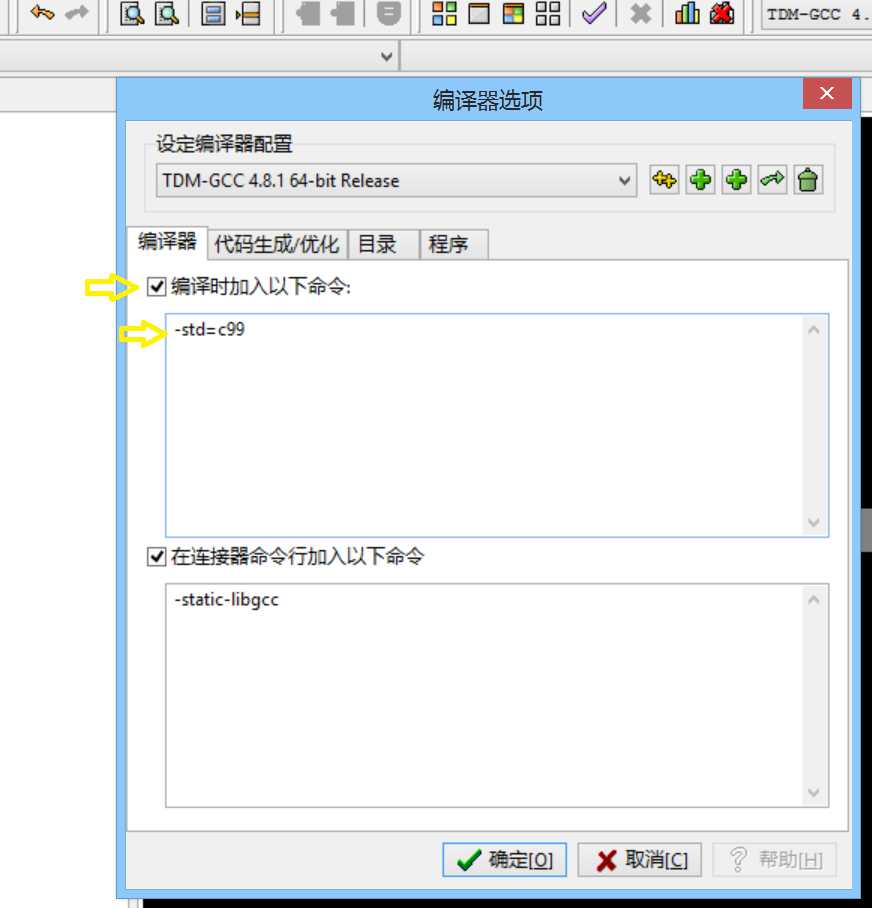How To Use C99 Mode In Dev C++

Originally released by Bloodshed Software, but abandoned in 2006, it has recently been forked by Orwell, including a choice of more recent compilers. It can be downloaded from:
http://orwelldevcpp.blogspot.comInstallation
Run the downloaded executable file, and follow its instructions. The default options are fine.Support for C++11
By default, support for the most recent version of C++ is not enabled. It shall be explicitly enabled by going to:Tools -> Compiler OptionsHere, select the 'Settings' tab, and within it, the 'Code Generation' tab. There, in 'Language standard (-std)' select 'ISO C++ 11':
Ok that. You are now ready to compile C++11!
Compiling console applications
To compile and run simple console applications such as those used as examples in these tutorials it is enough with opening the file with Dev-C++ and hitF11.As an example, try:
File -> New -> Source File (or Ctrl+N)There, write the following:
Then:
File -> Save As.. (or Ctrl+Alt+S)And save it with some file name with a
.cpp extension, such as example.cpp.Now, hitting
F11 should compile and run the program.If you get an error on the type of
x, the compiler does not understand the new meaning given to auto since C++11. Please, make sure you downloaded the latest version as linked above, and that you enabled the compiler options to compile C++11 as described above.Tutorial
You are now ready to begin the language tutorial: click here!.Dev-C is far too old to support C11. The compiler can be changed to point to a newer version of MinGW. The only issue is there's no direct support for new features in the editor or UI components for C11 switches in the IDE's configuration. However, you can still use the advanced command line arguments in the configuration to set those switches. How to use Dev-C Introduction Dev-C is a full-featured integrated development environment (IDE), which is able to create Windows or DOS-based C/C programs using the Mingw compiler system (included with the package), or the Cygwin compiler. So I think you need to use the 'I64' grubbyness when using long long variables in printf conversions when programming in dev-c. To make the compiler compile C99 code, if you have a reasonably new gcc compiler, then you could try adding '-std=c99' to the compiler command line. Dev-C is far too old to support C11. The compiler can be changed to point to a newer version of MinGW. The only issue is there's no direct support for new features in the editor or UI components for C11 switches in the IDE's configuration. However, you can still use the advanced command line arguments in the configuration to set those switches. /auto-tune-pluging-for.html.
How To Use C99 Mode In Dev C Download
|